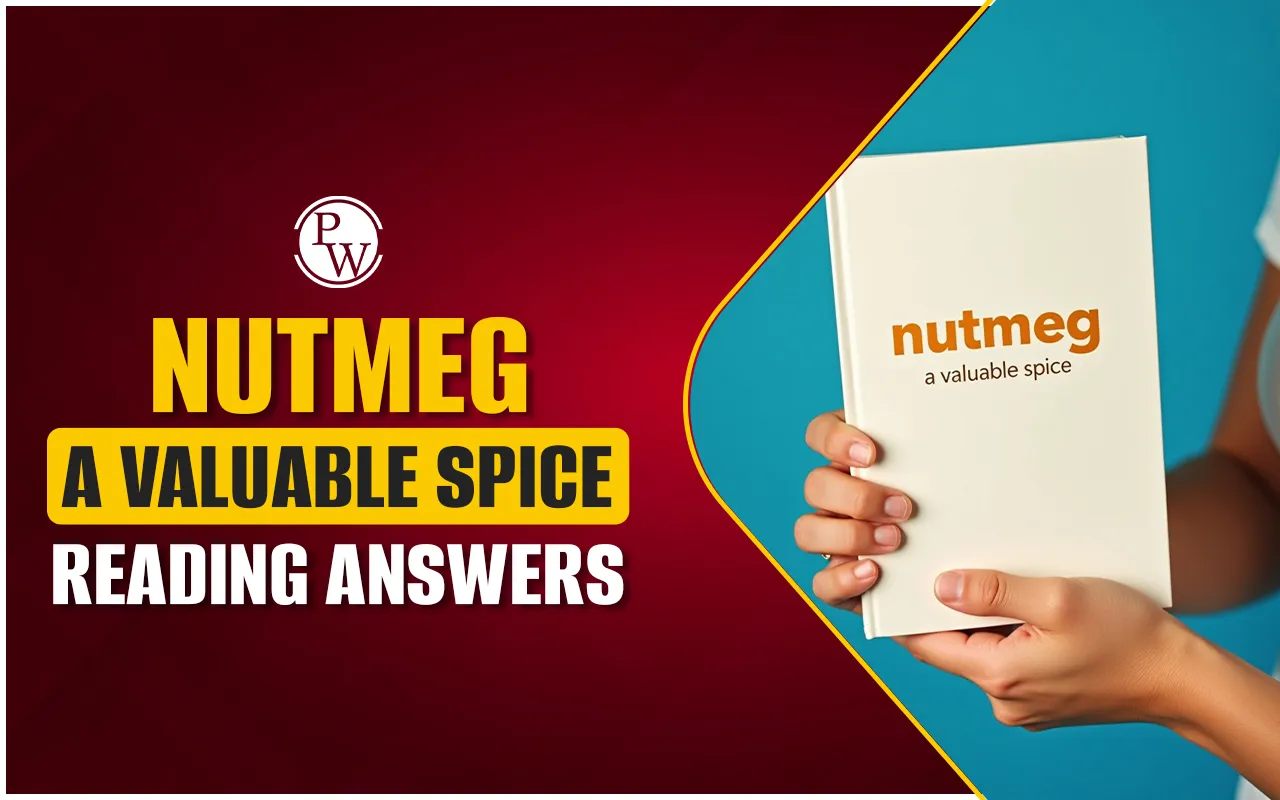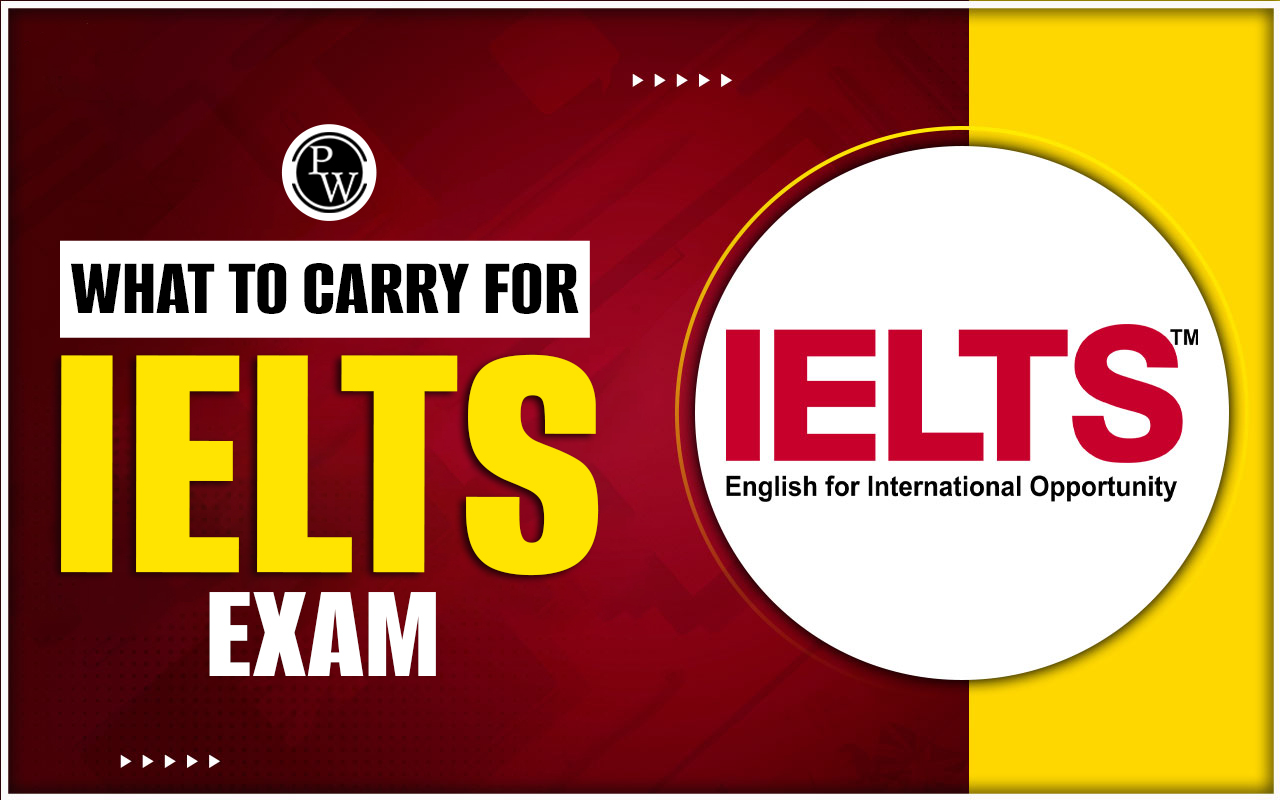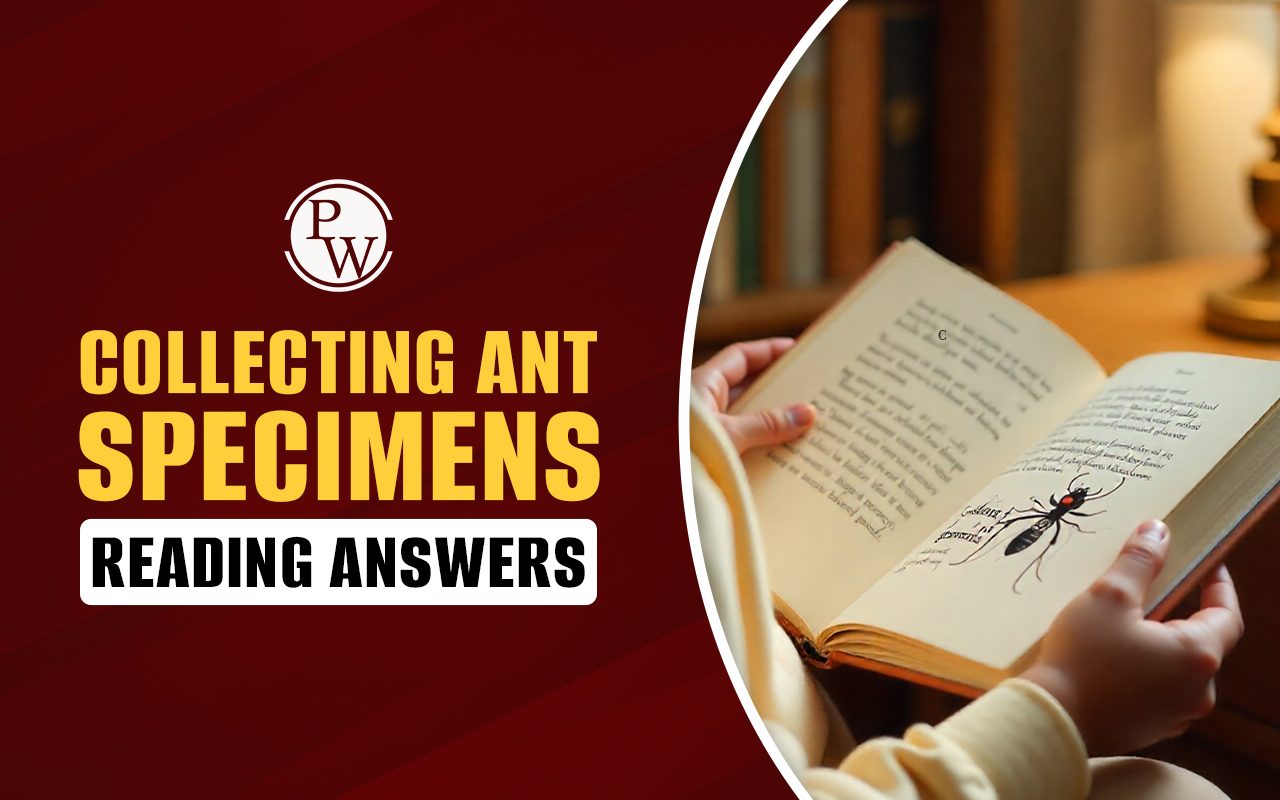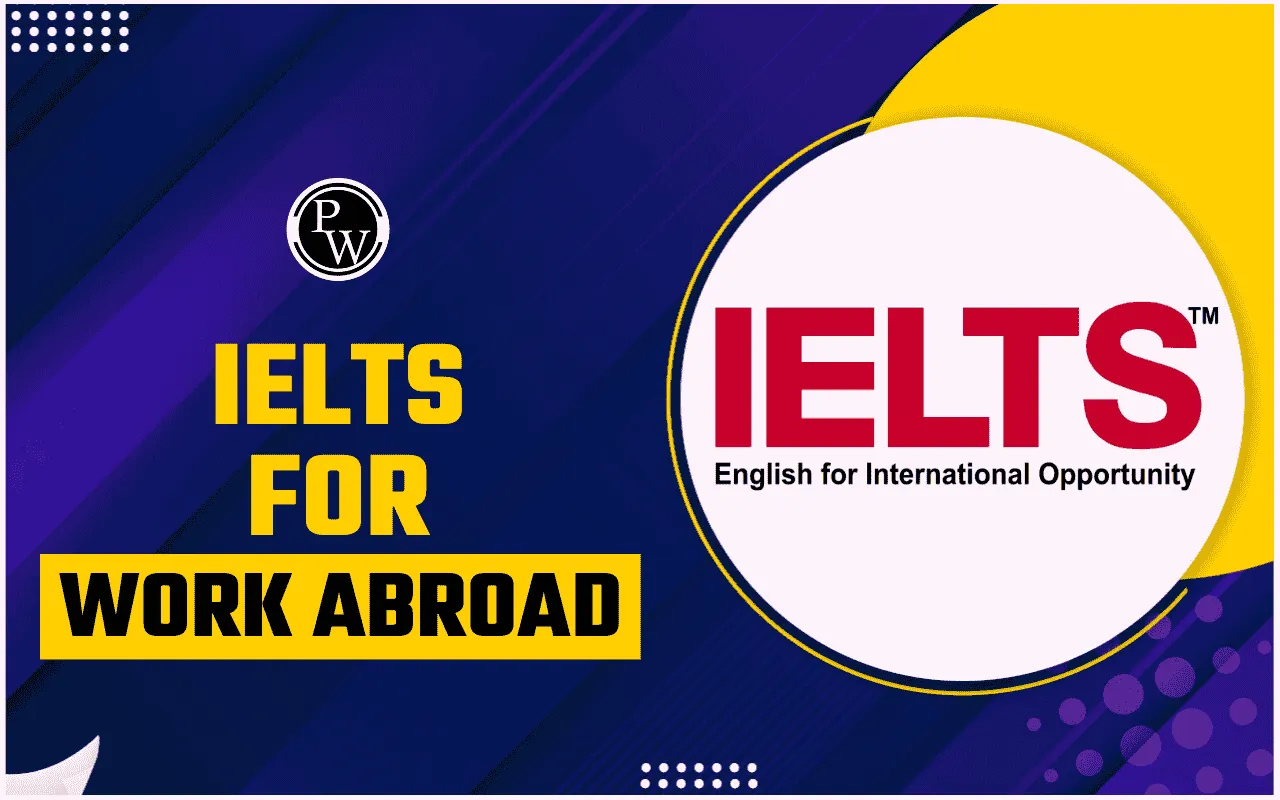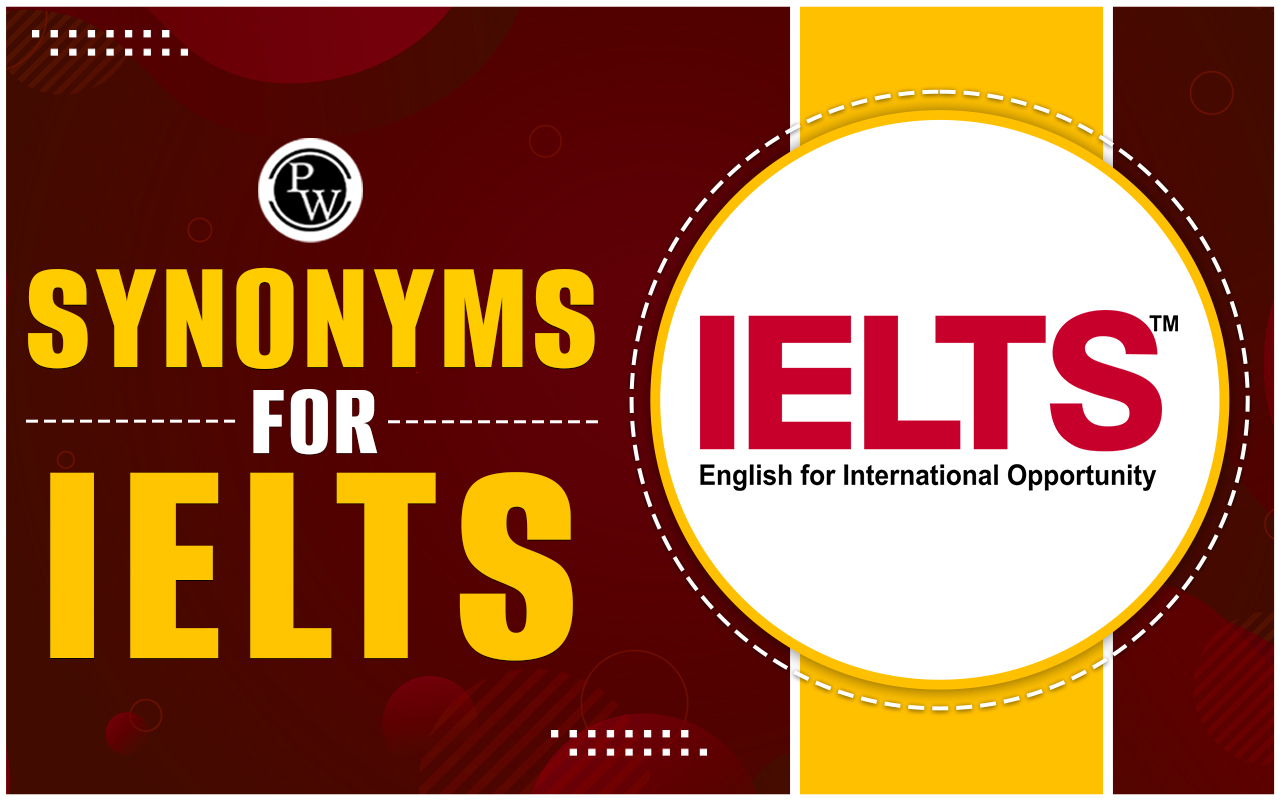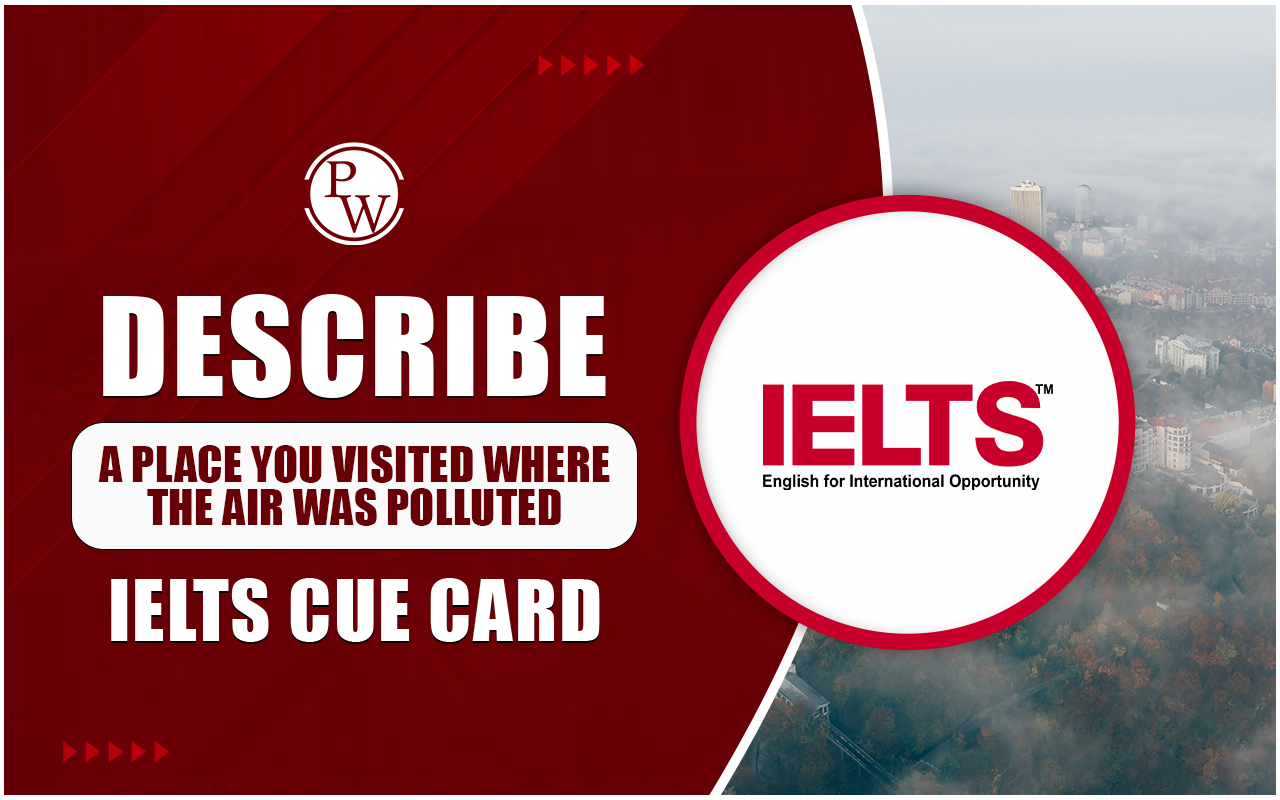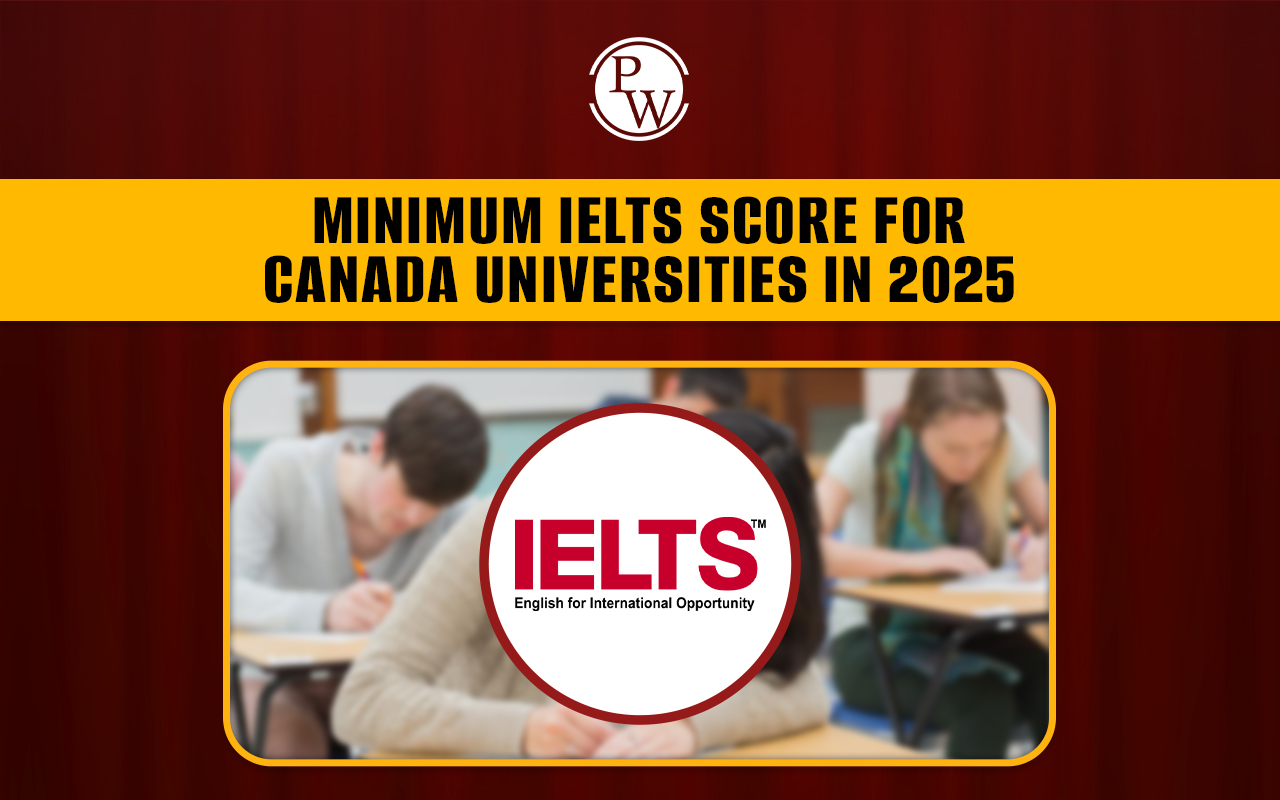
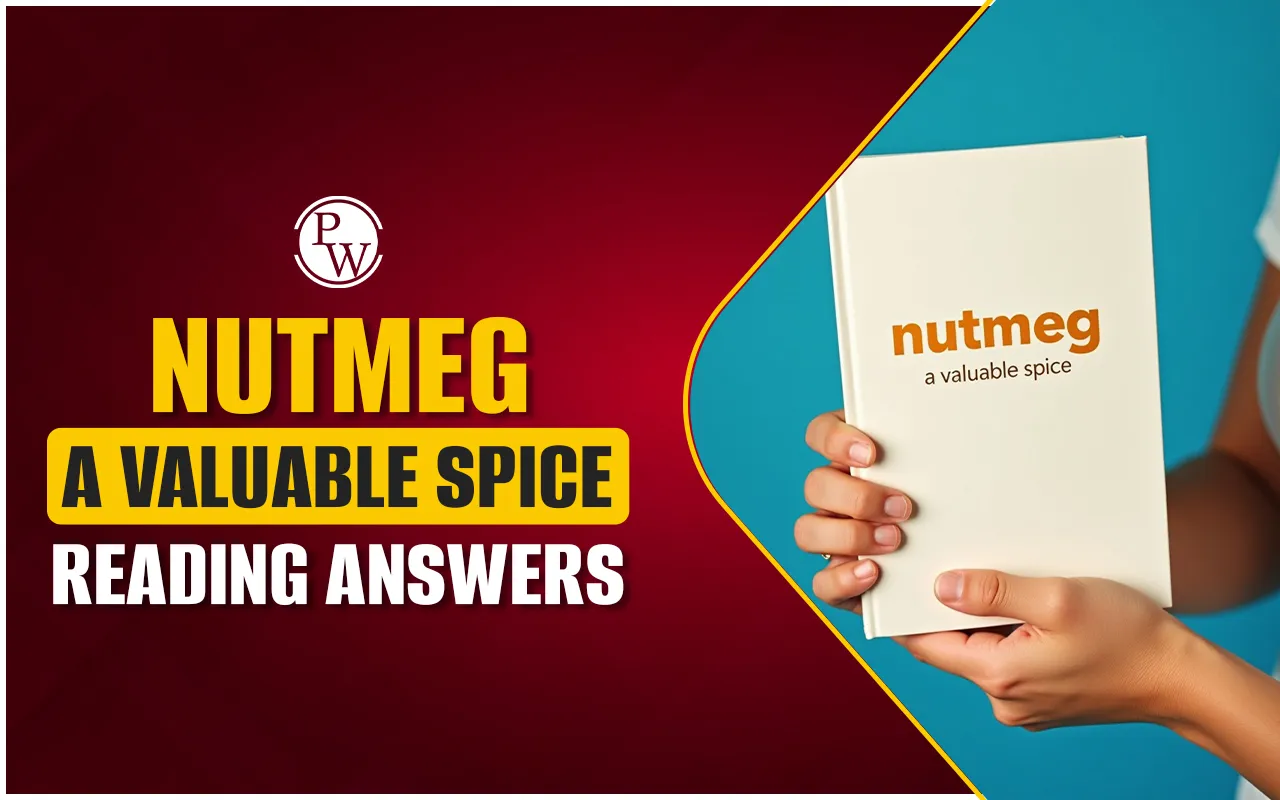
Nutmeg a Valuable Spice Reading Answers: The IELTS Reading passage "Nutmeg A Valuable Spice" is a popular topic that evaluates comprehension through different question types. This passage explores the history, trade, and significance of nutmeg, testing skills like identifying key ideas, finding specific details, and completing missing information. Here, we have prepared a set of 13 questions related to the "Nutmeg A Valuable Spice" passage. Practicing these questions will help enhance reading skills and improve performance in the IELTS Reading section.
Nutmeg a Valuable Spice Reading Answers Passage
You should spend about 20 minutes on Questions 1-13, which are based on the reading passage 1 below.
Nutmeg a Valuable Spice
-
The nutmeg tree, Myristica fragrans, is a large evergreen tree native to Southeast Asia. Until the late 18th century, it only grew in one place in the world: a small group of islands in the Banda Sea, part of the Moluccas – or Spice Islands – in northeastern Indonesia. The tree is thickly branched with dense foliage of tough, dark green oval leaves and produces small, yellow, bell-shaped flowers and pale yellow pear-shaped fruits. The fruit is encased in a flesh husk. When the fruit is ripe, this husk splits into two halves along a ridge running the length of the fruit. Inside is a purple-brown shiny seed, 2-3 cm long by about 2 cm across, surrounded by a lacy red or crimson covering called an ‘aril’. These are the sources of the two spices, nutmeg and mace, the former being produced from the dried seed and the latter from the aril.
-
Nutmeg was a highly prized and costly ingredient in European cuisine in the Middle Ages and was used as a flavouring, medicinal, and preservative agent. Throughout this period, the Arabs were the exclusive importers of spices to Europe. They sold nutmeg for high prices to merchants based in Venice, but they never revealed the exact location of the source of this extremely valuable commodity. The Arab-Venetian dominance of the trade finally ended in 1512, when the Portuguese reached the Banda Islands and began exploiting its precious resources.
-
Always in danger of competition from neighbouring Spain, the Portuguese began subcontracting their spice distribution to Dutch traders. Profits began to flow into the Netherlands, and the Dutch commercial fleet swiftly grew into one of the largest in the world. The Dutch quietly gained control of most of the shipping and trading of spices in Northern Europe. Then, in 1580, Portugal fell under Spanish rule, and by the end of the 16th century, the Dutch found themselves locked out of the market. As prices for pepper, nutmeg, and other spices soared across Europe, they decided to fight back.
-
In 1602, Dutch merchants founded the VOC, a trading corporation better known as the Dutch East India Company. By 1617, the VOC was the richest commercial operation in the world. The company had 50,000 employees worldwide, with a private army of 30,000 men and a fleet of 200 ships. At the same time, thousands of people across Europe were dying of the plague, a highly contagious and deadly disease. Doctors were desperate for a way to stop the spread of this disease, and they decided nutmeg held the cure. Everybody wanted nutmeg, and many were willing to spare no expense to have it. Nutmeg bought for a few pennies in Indonesia could be sold for 68,000 times its original cost on the streets of London. The only problem was the short supply. And that’s where the Dutch found their opportunity.
-
The Banda Islands were ruled by local sultans who insisted on maintaining a neutral trading policy towards foreign powers. This allowed them to avoid the presence of Portuguese or Spanish troops on their soil, but it also left them unprotected from other invaders. In 1621, the Dutch arrived and took over. Once securely in control of the Bandas, the Dutch went to work protecting their new investment. They concentrated all nutmeg production into a few easily guarded areas, uprooting and destroying any trees outside the plantation zones. Anyone caught growing a nutmeg seedling or carrying seeds without the proper authority was severely punished. In addition, all exported nutmeg was covered with lime to make sure there was no chance a fertile seed which could be grown elsewhere would leave the islands. There was only one obstacle to Dutch domination. One of the Banda Islands, a sliver of land called Run, only 3 km long by less than 1 km wide, was under the control of the British. After decades of fighting for control of this tiny island, the Dutch and British arrived at a compromise settlement, the Treaty of Breda, in 1667. Intent on securing their hold over every nutmeg-producing island, the Dutch offered a trade: if the British would give them the island of Run, they would, in turn, give Britain a distant and much less valuable island in North America. The British agreed. That other island was Manhattan, which is how New Amsterdam became New York. The Dutch now had a monopoly over the nutmeg trade, which would last for another century.
-
Then, in 1770, a Frenchman named Pierre Poivre successfully smuggled nutmeg plants to safety in Mauritius, an island off the coast of Africa. Some of these were later exported to the Caribbean, where they thrived, especially on the island of Grenada. Next, in 1778, a volcanic eruption in the Banda region caused a tsunami that wiped out half the nutmeg groves. Finally, in 1809, the British returned to Indonesia and seized the Banda Islands by force. They returned the islands to the Dutch in 1817, but not before transplanting hundreds of nutmeg seedlings to plantations in several locations across southern Asia. The Dutch nutmeg monopoly was over. Today, nutmeg is grown in Indonesia, the Caribbean, India, Malaysia, Papua New Guinea and Sri Lanka, and world nutmeg production is estimated to average between 10,000 and 12,000 tonnes per year.
| IELTS Exam Important Links | |
|---|---|
| IELTS Reading Band Score | IELTS Listening Band Score |
| IELTS Speaking Band Score | IELTS Writing Band Score |
Nutmeg a Valuable Spice Reading Answers Sample Questions
Questions 1-8
Do the following statements agree with the information given in the reading passage?
In boxes 1-8 on your answer sheet, write:
- TRUE if the statement agrees with the information
- FALSE if the statement contradicts the information
- NOT GIVEN if there is no information on this
- The nutmeg tree is indigenous to the Caribbean region.
- In the Middle Ages, nutmeg was used for medicinal purposes in Europe.
- The Arabs kept the location of nutmeg production a secret from European traders.
- The Portuguese discovered nutmeg before the Spanish.
- The Dutch East India Company had more than 100,000 employees worldwide.
- Nutmeg was believed to be a remedy for the plague in the 17th century.
- The Treaty of Breda allowed the Dutch to exchange nutmeg for spices in North America.
- The British first introduced nutmeg to the Caribbean region.
Questions 9-12
Complete the sentences below.
Choose NO MORE THAN THREE WORDS from the passage for each answer.
Write your answers in boxes 9-12 on your answer sheet.
- The Banda Islands were the only known source of nutmeg until the _______________.
- The Dutch used _______________ to prevent fertile nutmeg seeds from being planted outside their territory.
- The Dutch controlled the nutmeg trade for nearly _______________.
- _______________ transported nutmeg plants to Mauritius in 1770.
Question 13
Choose the correct letter (A, B, C, or D).
- Why did the Dutch want control over Run Island?
A. It was rich in gold and other minerals.
B. It was a major trading hub for spices in Southeast Asia.
C. It was the last remaining British-controlled nutmeg-producing island.
D. It provided an important route for ships traveling to North America.
Nutmeg a Valuable Spice Reading Answers with Explanations
-
FALSE
-
Answer Location: Paragraph A
-
Reference: "The nutmeg tree, Myristica fragrans, is a large evergreen tree native to Southeast Asia."
-
Explanation: The passage clearly states that the nutmeg tree is native to Southeast Asia, not the Caribbean.
-
TRUE
-
Answer Location: Paragraph B
-
Reference: "Nutmeg was a highly prized and costly ingredient in European cuisine in the Middle Ages and was used as a flavouring, medicinal, and preservative agent."
-
Explanation: The passage explicitly mentions that nutmeg was used for medicinal purposes in Europe during the Middle Ages.
-
TRUE
-
Answer Location: Paragraph B
-
Reference: "They sold nutmeg for high prices to merchants based in Venice, but they never revealed the exact location of the source of this extremely valuable commodity."
-
Explanation: This confirms that the Arabs kept the location of nutmeg production a secret from European traders.
-
TRUE
-
Answer Location: Paragraph B
-
Reference: "The Arab-Venetian dominance of the trade finally ended in 1512, when the Portuguese reached the Banda Islands and began exploiting its precious resources."
-
Explanation: The passage confirms that the Portuguese were the first Europeans to reach the Banda Islands and access nutmeg, before the Spanish.
-
FALSE
-
Answer Location: Paragraph D
-
Reference: "By 1617, the VOC was the richest commercial operation in the world. The company had 50,000 employees worldwide, with a private army of 30,000 men and a fleet of 200 ships."
-
Explanation: The passage states that the Dutch East India Company had 50,000 employees, not more than 100,000.
-
TRUE
-
Answer Location: Paragraph D
-
Reference: "At the same time, thousands of people across Europe were dying of the plague... Doctors were desperate for a way to stop the spread of this disease, and they decided nutmeg held the cure."
-
Explanation: This confirms that nutmeg was believed to be a cure for the plague in the 17th century.
-
FALSE
-
Answer Location: Paragraph F
-
Reference: "The Treaty of Breda, in 1667. Intent on securing their hold over every nutmeg-producing island, the Dutch offered a trade: if the British would give them the island of Run, they would, in turn, give Britain a distant and much less valuable island in North America."
-
Explanation: The treaty involved the exchange of Run Island for Manhattan, not nutmeg for spices in North America.
-
FALSE
-
Answer Location: Paragraph G
-
Reference: "Then, in 1770, a Frenchman named Pierre Poivre successfully smuggled nutmeg plants to safety in Mauritius, an island off the coast of Africa. Some of these were later exported to the Caribbean."
-
Explanation: The passage states that the French, not the British, first introduced nutmeg to the Caribbean.
-
Late 18th century
-
Answer Location: Paragraph A
-
Reference: "Until the late 18th century, it only grew in one place in the world: a small group of islands in the Banda Sea."
-
Explanation: This confirms that the Banda Islands were the only known source of nutmeg until the late 18th century.
-
Lime
-
-
Answer Location: Paragraph F
-
Reference: "In addition, all exported nutmeg was covered with lime to make sure there was no chance a fertile seed which could be grown elsewhere would leave the islands."
-
Explanation: The Dutch covered exported nutmeg with lime to prevent fertile seeds from growing outside their territory.
-
-
A century
-
-
Answer Location: Paragraph F
-
Reference: "The Dutch now had a monopoly over the nutmeg trade, which would last for another century."
-
Explanation: The Dutch controlled the nutmeg trade for about a hundred years.
-
-
Pierre Poivre
-
-
Answer Location: Paragraph G
-
Reference: "Then, in 1770, a Frenchman named Pierre Poivre successfully smuggled nutmeg plants to safety in Mauritius."
-
Explanation: Pierre Poivre was responsible for smuggling nutmeg plants to Mauritius.
-
-
C (It was the last remaining British-controlled nutmeg-producing island.)
-
-
Answer Location: Paragraph F
-
Reference: "One of the Banda Islands, a sliver of land called Run... was under the control of the British. After decades of fighting for control of this tiny island, the Dutch and British arrived at a compromise settlement."
-
Explanation: The Dutch wanted control over Run because it was the last British-controlled nutmeg-producing island, making option C the correct answer.
-
Also Read:
- Should You Use All Capital Letters in the IELTS Listening and Reading Tests
- IELTS Reading Mistakes
- How to Improve IELTS Reading Score
- How to Manage Time in IELTS Reading
Guidance of PW IELTS
Physics Wallah offers multiple online IELTS courses for all students. Follow the IELTS pages to better prepare for the exam.
| What is IELTS Exam? | Documents Required for IELTS Registration |
| IELTS exam eligibility requirements | IELTS Exam Fees |
| IELTS test results | IELTS Exam Pattern |
Nutmeg a Valuable Spice Reading Answers FAQs
Why was nutmeg so valuable in the past?
How did the Dutch maintain their monopoly on nutmeg?
What was the Treaty of Breda, and how did it impact the nutmeg trade?
How did nutmeg spread beyond the Banda Islands?
Where is nutmeg produced today?

